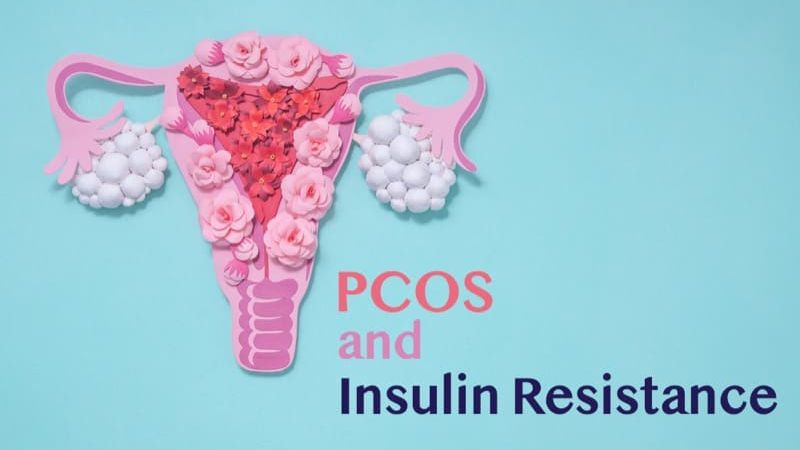Many women, as many as 70-80%, experience some blues after delivery owing to hormonal, social, and emotional changes that take place. These blues can manifest as overwhelming feelings, sadness, guilt, or crying spells. They can manifest in the first week after delivery and can persist for a couple of weeks. in this blog post, we will walk you through the causes, management tips, and treatment of postpartum blues and depression.
What can be the cause of the blues?

Hormonal changes are thought to cause baby blues as estrogen and progesterone fall many folds and return to normal levels soon after delivery. Apart from that, the new responsibility, the changed life, too much tiredness and less sleep, and minimal support from family or partners can also wreak havoc on the new mom’s mental health. The good thing is it is self-limiting and goes away in a couple of weeks.
Can postpartum blues be something more serious?

Postpartum blues are self-limiting and improve within a couple of weeks. However, if the symptoms persist for longer, and are more intense like frequent crying spells, extreme mood swings, there are thoughts of harming the baby or suicide, and inability to take care of oneself and the baby then it might be a more serious disorder like postpartum depression. It happens in 10-15% of mothers and can develop many months after delivery up to a year. It can even develop in surrogates or adoptive parents too. Consulting a psychiatrist is necessary to treat this as psychotherapy or anti-depressants or both are needed to treat this condition. Luckily, it is almost always treatable. Women who have a previous history of mental illness, no support system, and an ill child are more likely to develop depression.
In rare conditions, 1 in 1000, patients may develop postpartum psychosis where apart from the depressive symptoms, the person suffers from severe agitation, confusion, hopelessness, shame, insomnia, paranoia, hallucinations, delusions, rapid speech, or mania. The symptoms develop quickly after delivery and can persist for a few weeks to several months. Such a person is at a high risk of harming the baby and herself and this should be treated as a medical emergency. Treatment includes hospitalization, psychotherapy, and medications.
Prevention is difficult but knowing that such symptoms can develop in new parents can alleviate some anxiety. Talking to family and friends, forming a support system, and asking for help can greatly help with the overwhelming task of taking care of a newborn.
What is the difference between postpartum blues and depression?

Though the symptoms of blues and depression are similar, the blues are less intense and do not usually last for more than a couple of weeks. The depression symptoms are more intense and last for weeks to months. Some of the symptoms to watch out for if you want to know if you have blues are:
- Frequent crying spells
- Feeling overwhelmed
- Mood changes
- Trouble sleeping
- Change in appetite
It is ok to have good or bad days but if a person has many of the following symptoms for most days of the week then it might be an indication of her having postpartum depression:
- Feeling sad, hopeless, worthless, or guilty
- Lack of interest in the baby or self, leading to difficulties in taking care of the baby or self
- Thoughts of harming baby or self
- Lack of interest in hobbies or things that the person enjoyed doing once
- Complete loss of appetite
- Difficulty in focusing or thinking
- Insomnia or excessive sleep
- Worrying excessively or feeling on the edge all the time
Who is more susceptible to postpartum depression?

Though postpartum blues or depression can develop in anyone, there are some who are more susceptible, like:
- Those having limited social support
- Having a personal or family history of depression
- Discordant marriage or unsupportive partner
- Complications during pregnancy or childbirth
- An ill child or child with special needs
- Single parent
When to find professional help if you are having postpartum depression?

If you think you are suffering from depression or psychosis or someone you know is suffering from either of these then it’s best to contact any healthcare provider that you feel comfortable with, whether the obstetrician, pediatrician, primary care provider, psychiatrist, or counselor. Some warning signs are:
- Recurrent thoughts of suicide
- Recurrent thoughts of harming your baby
- Depressed mood lasting for most of the time of the day for two weeks
- Confusion or difficulty in concentrating
- Having difficulty making decisions about everyday situations
- Loss of interest or pleasure in most activities nearly every day for the last two weeks
Can postpartum depression harm the baby?

Though blues are mild and are not likely to harm your baby, prolonged depression is observed to negatively impact the development of your child. The several ways through which depression can affect the baby are:
- Difficulty in bonding
- Behavioral issues
- Learning difficulties
- Neglect due to missed pediatric appointments leading to missed vaccinations or insufficient care of an ill child
- Limited social skills and developmental issues
Screening and diagnosis of postpartum depression

Healthcare providers should not miss the opportunity of screening their patients for depression when they come for post-natal visits. The patients on the other hand should openly discuss the challenges that they are facing with their providers so that the right help can be offered in time.
Many healthcare providers use the Edinburgh Postnatal Depression Scale to screen for postpartum depression. It consists of 10 questions related to symptoms of depression such as feeling unhappy, anxious, or guilty. This questionnaire is also used by many providers during ante-natal visits to identify patients who are already depressed and who are at high risk of developing postpartum depression.
Conclusion
Pregnancy is a physiological process and around 400,000 babies are born every day. Most moms are overwhelmed and you are not alone in this. Talk to a friend, parent, or relative, or join a local community of moms for help or support. Just with a little bit of help, you can make motherhood a greatly enjoyable and fulfilling experience, though sleepless nights will still be there ?






